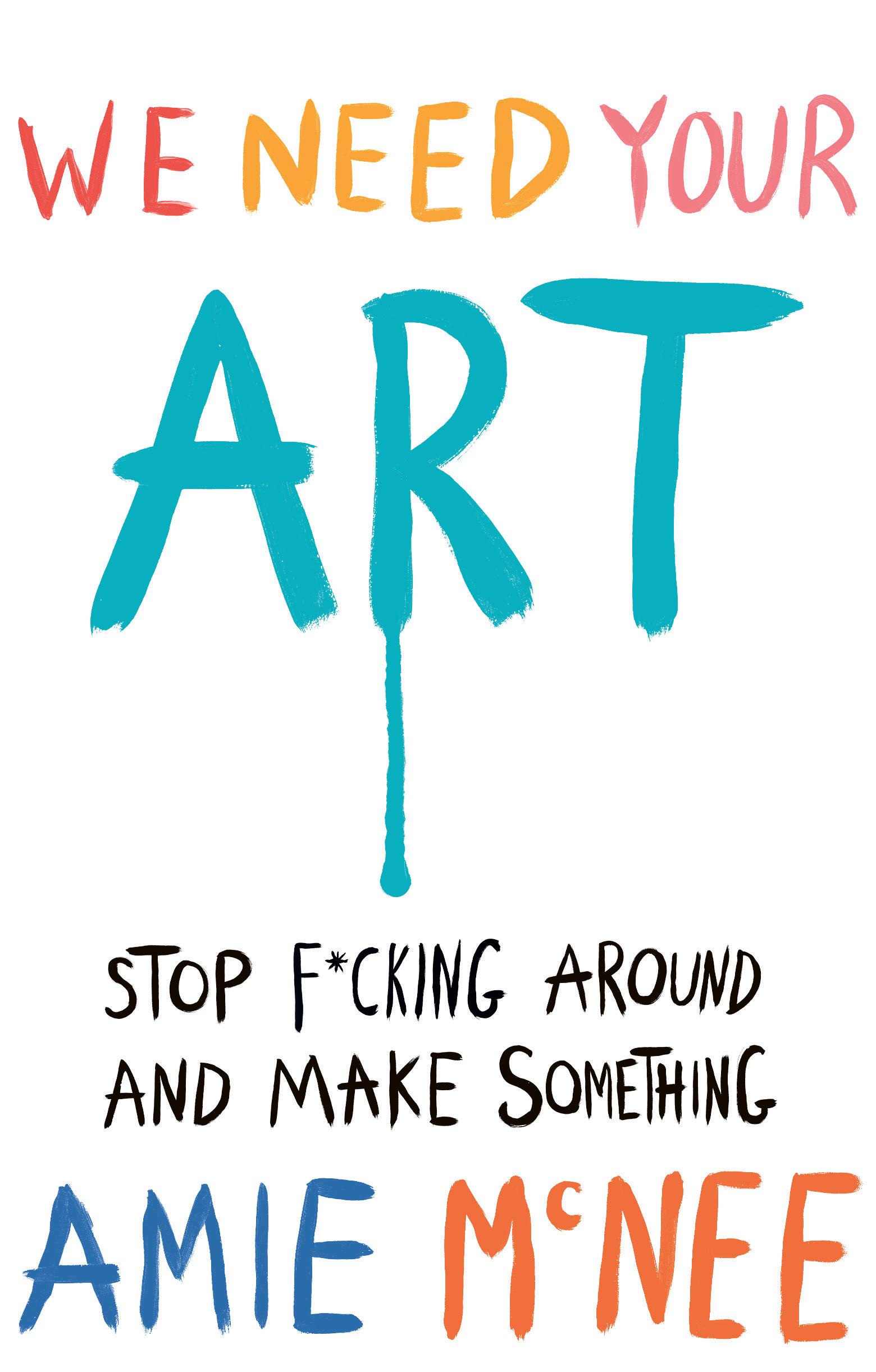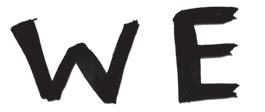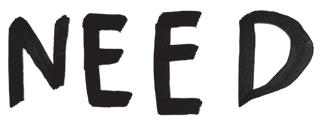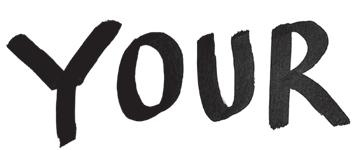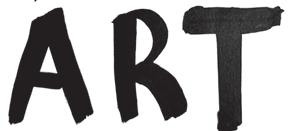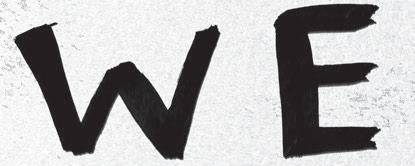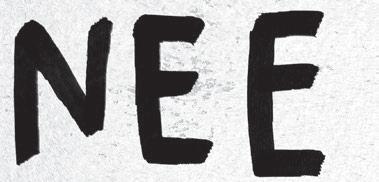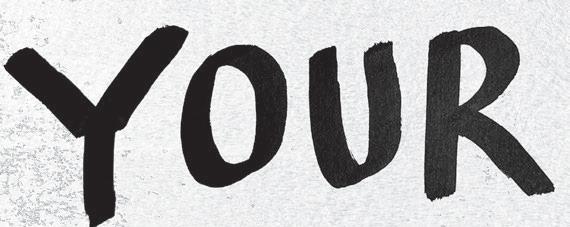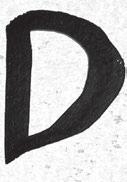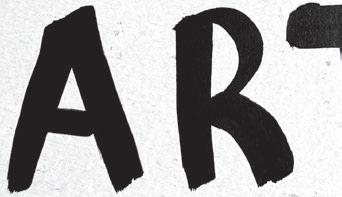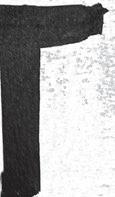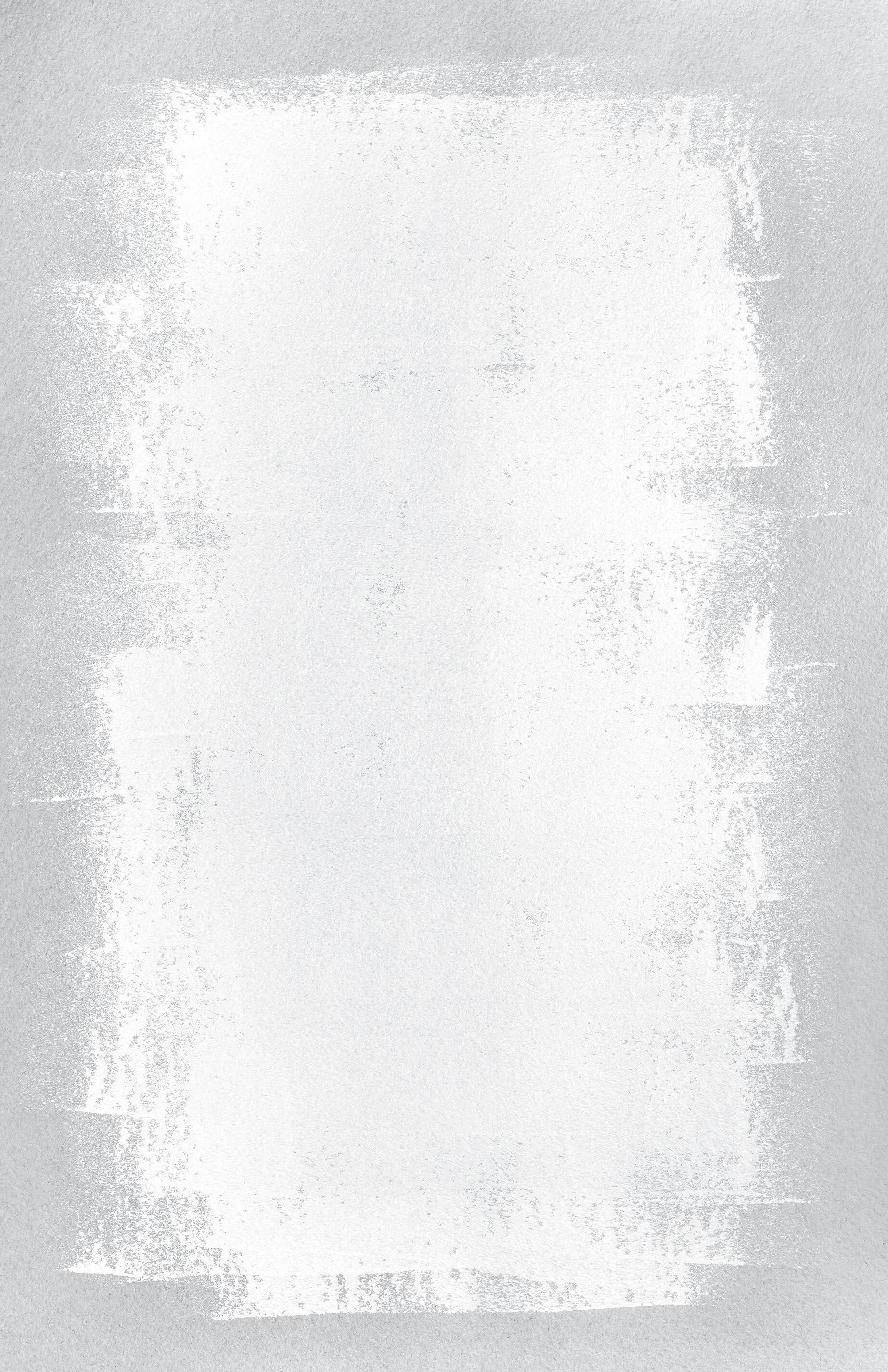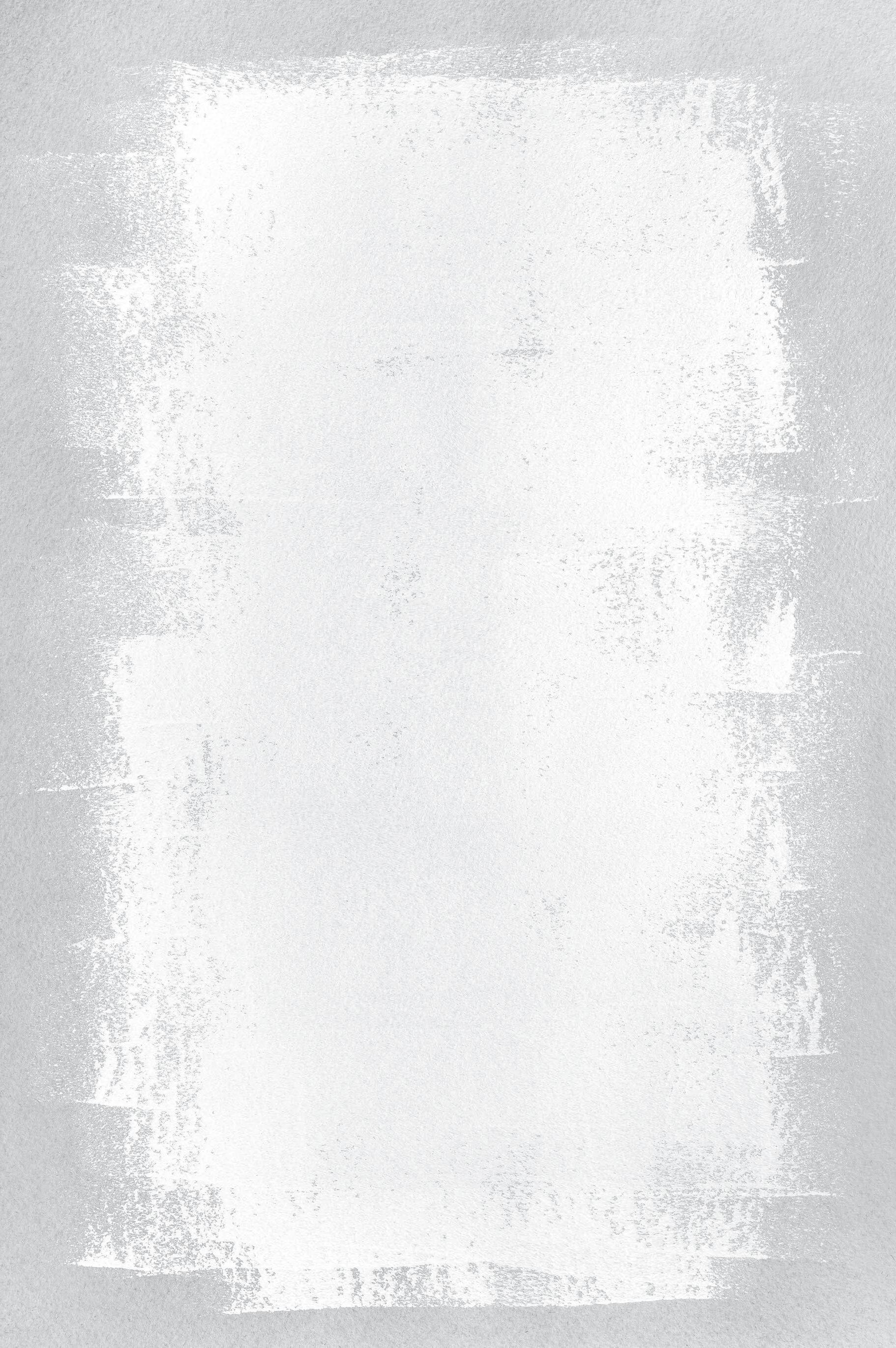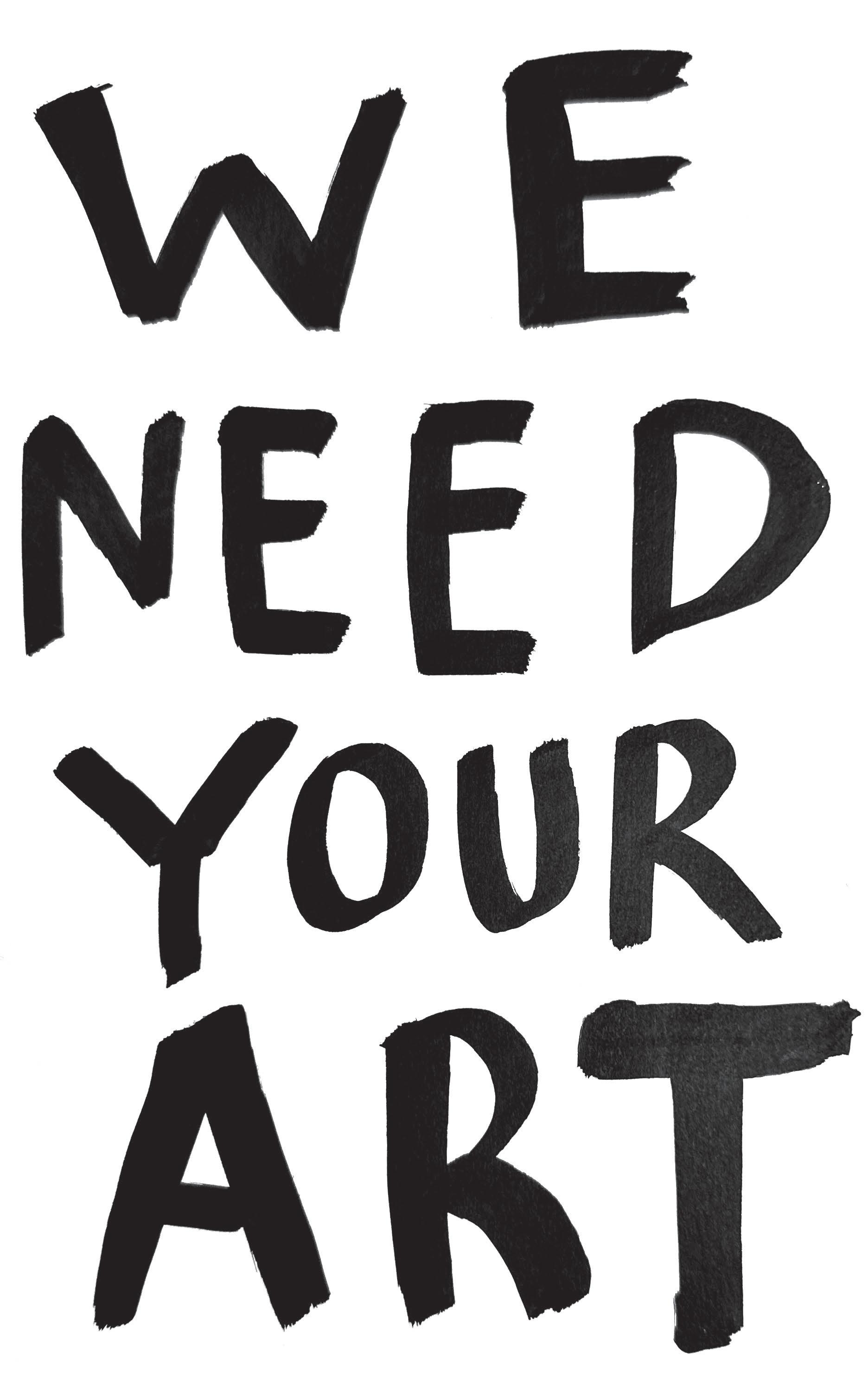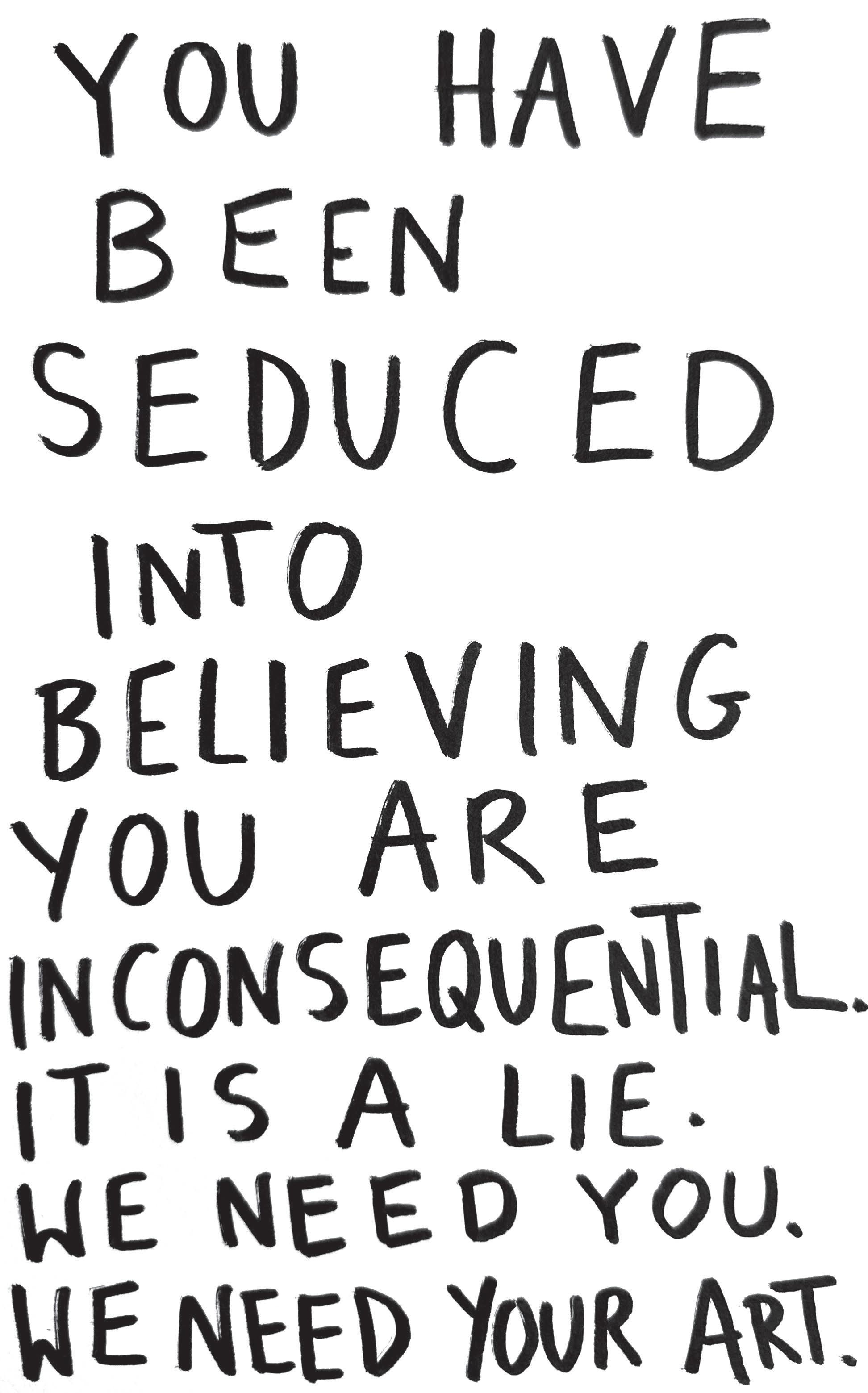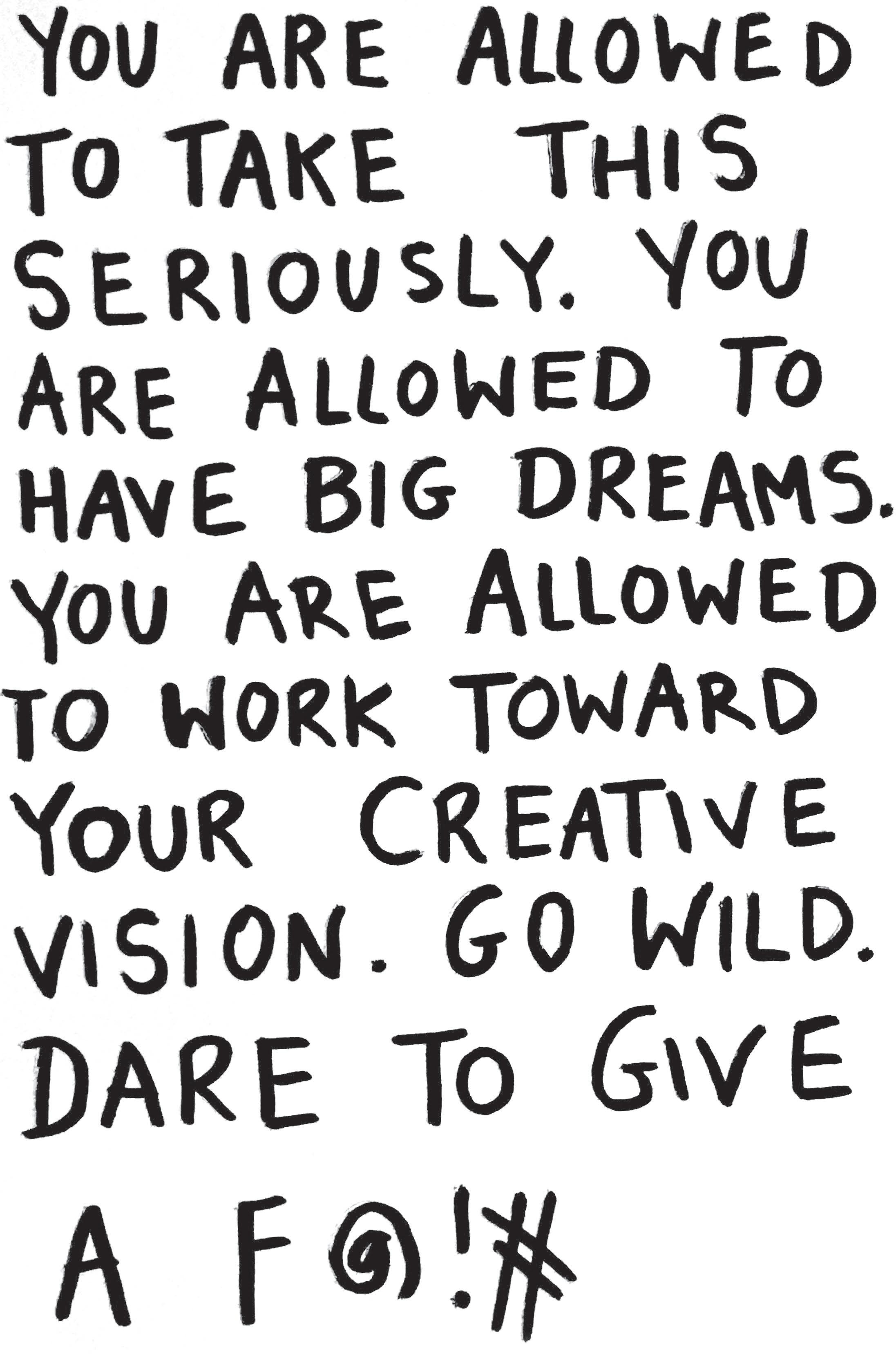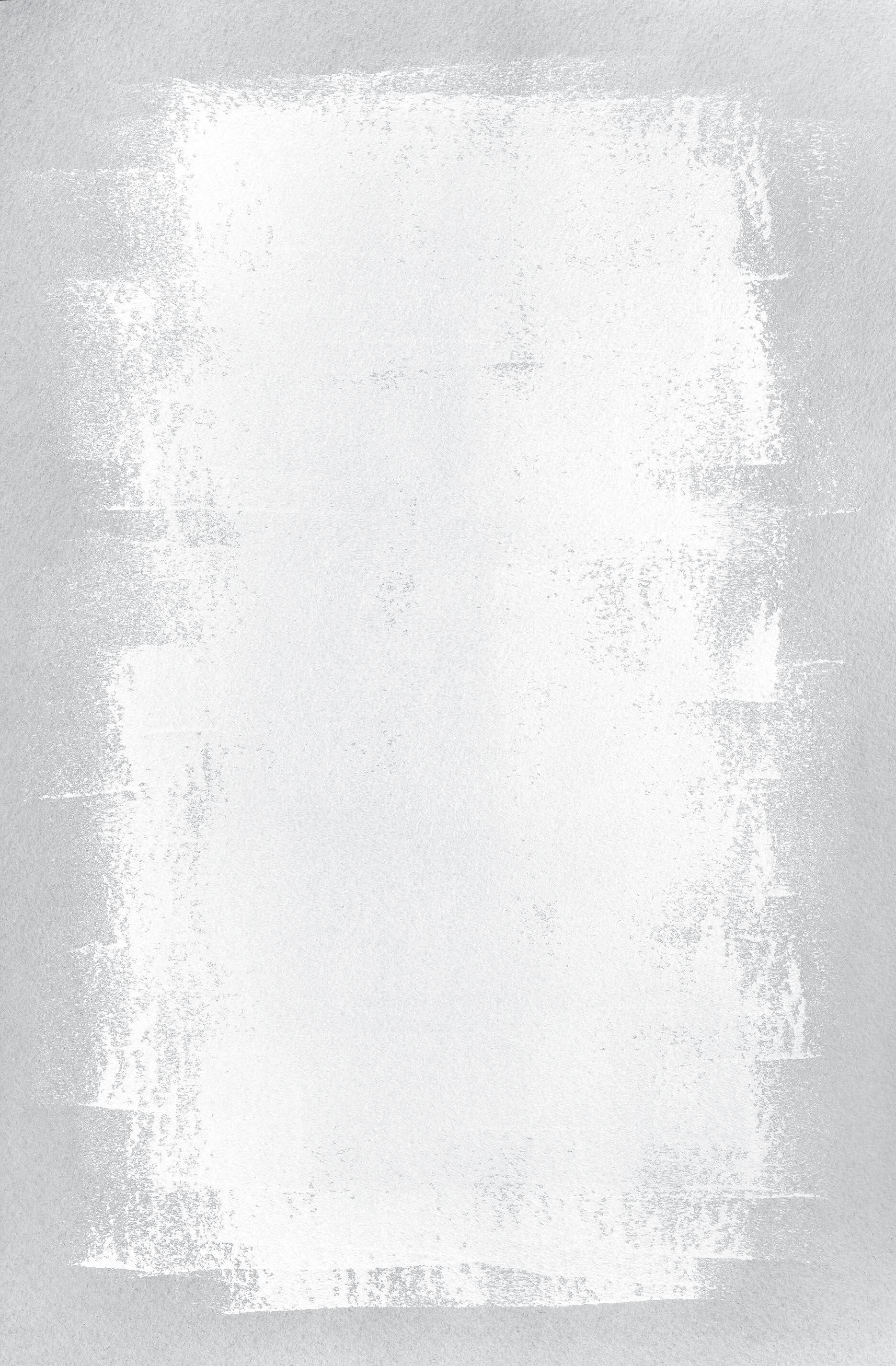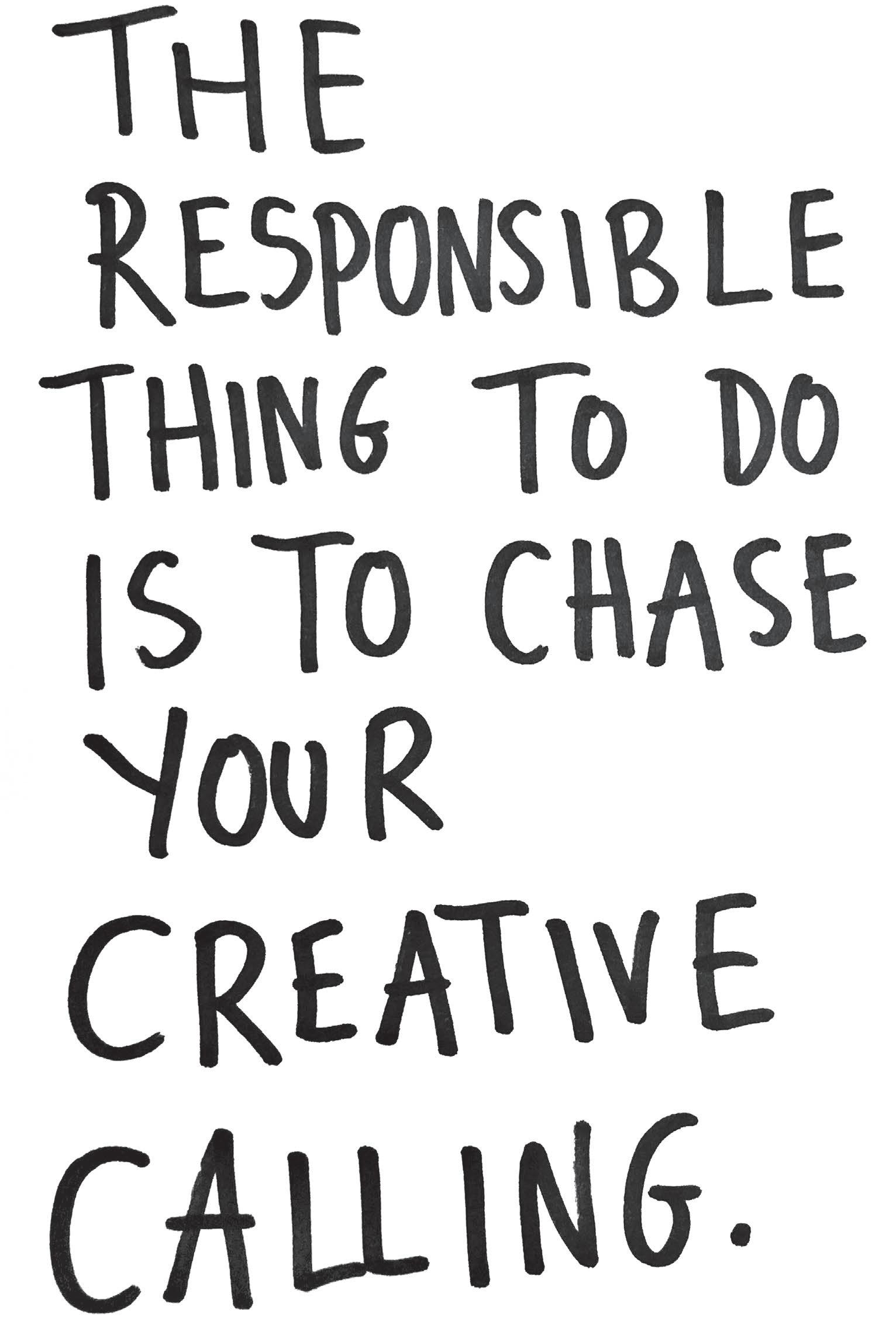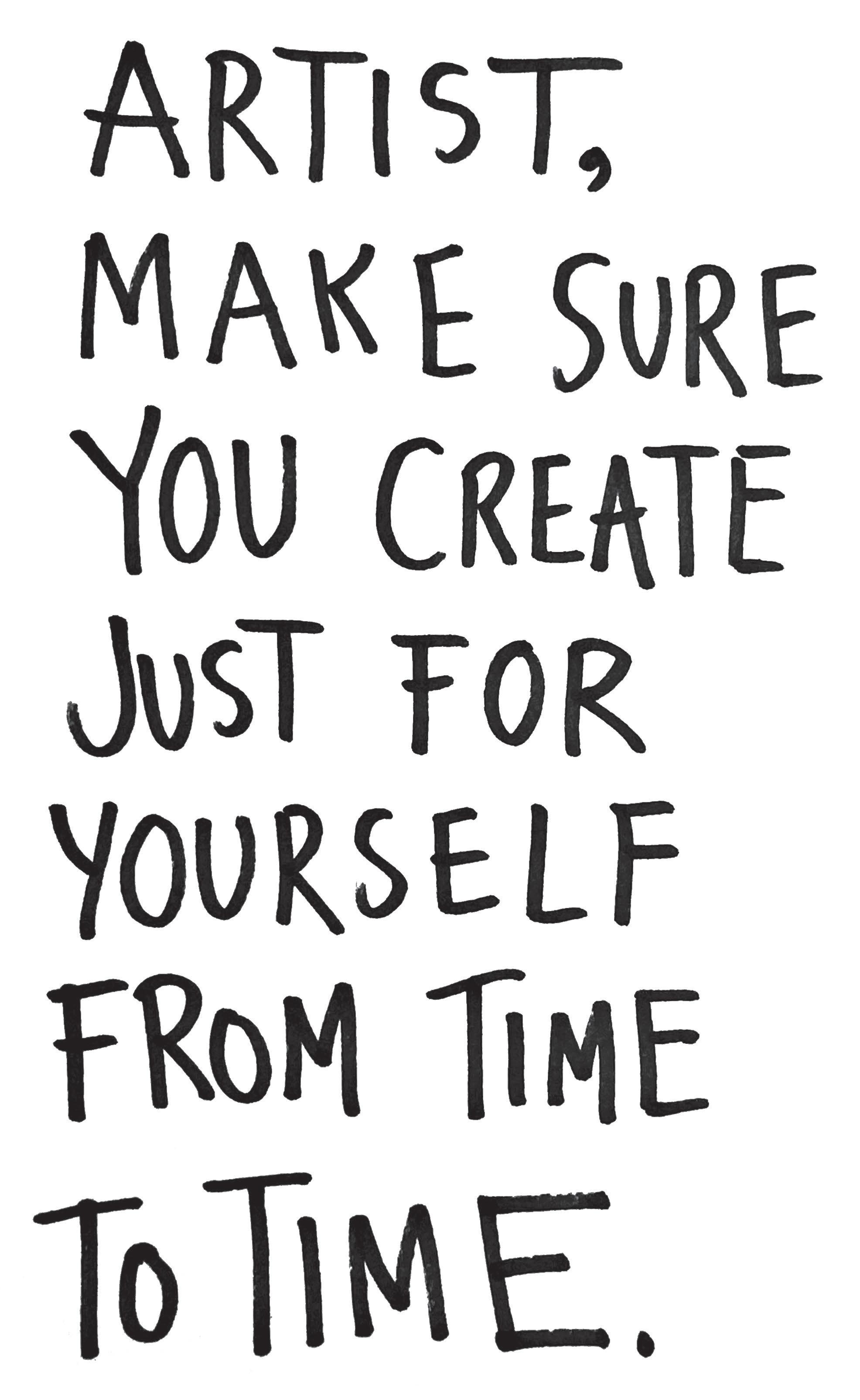Stop F*cking Around and Make Something
Ebury Press
UK | USA | Canada | Ireland | Australia India | New Zealand | South Africa
Ebury Press is part of the Penguin Random House group of companies whose addresses can be found at global.penguinrandomhouse.com
Penguin Random House UK One Embassy Gardens, 8 Viaduct Gardens, London SW11 7BW
penguin.co.uk global.penguinrandomhouse.com
First published in the USA by Penguin Life in 2025
First published in the United Kingdom by Ebury Press in 2025
1
Copyright © Amie McNee 2025
Illustrations copyright © Amie McNee 2025
The moral right of the author has been asserted.
Penguin Random House values and supports copyright. Copyright fuels creativity, encourages diverse voices, promotes freedom of expression and supports a vibrant culture. Thank you for purchasing an authorised edition of this book and for respecting intellectual property laws by not reproducing, scanning or distributing any part of it by any means without permission. You are supporting authors and enabling Penguin Random House to continue to publish books for everyone. No part of this book may be used or reproduced in any manner for the purpose of training artificial intelligence technologies or systems. In accordance with Article 4(3) of the DSM Directive 2019/790, Penguin Random House expressly reserves this work from the text and data mining exception.
Designed by Nerylsa Dijol
Printed and bound in Great Britain by Clays Ltd, Elcograf S.p.A.
The authorised representative in the EEA is Penguin Random House Ireland, Morrison Chambers, 32 Nassau Street, Dublin D02 YH68
A CIP catalogue record for this book is available from the British Library
ISBN 9781529937015
Penguin Random House is committed to a sustainable future for our business, our readers and our planet. This book is made from Forest Stewardship Council® certified paper.
To James.
My beloved. My creative collaborator. This book is as much yours as it is mine.
Thanks for letting me have all the glory.
Introduction ix
ACT ONE // THE CASE FOR CREATIVITY 1
Art: Responsible, Important, Sensible 3
Art Heals 19
ACT TWO // YOU ARE THE ARTIST 27
Coronate Yourself 29
Small Magic 43
The Two-Week Reset Challenge 53
ACT THREE // BLOCKS 67
On Procrastination 69 On Perfectionism 84
On Jealousy and Comparison 101
On Burnout 118 x
On Voice 141
On Self- Censorship 154
On Finishing 177
On Failure 195
On Success 211
On Patience 226
On Celebrating 241
Conclusion 250
Acknowledgements 253
Resources 255
INTRODUCTION
We need your art.
I envision you picking up this book, reading the title and squinting at it with deep suspicion. ‘My art? Who needs my art?’
We do. The world does.
‘The world needs my art?’ you ask incredulously.
Your art. We, the people, need YOUR art.
‘But why?’
So glad you asked. I wrote a whole book about it. Let’s begin.
Most of us have had, at some time, an inkling that there is something more – that we have something to give, to make, to create. Perhaps you have a glimmer of an idea for a novel or a bizarre pull toward watercolour paints. Maybe every time you watch a good movie you feel overcome with a grief that you weren’t a part of its creation.
You are made to create, but it’s so hard to detach and rewrite the stories we have been sold about what we are meant to be doing with our lives. Many of the systems we’re forced to participate in smother our creative fire; some don’t even let us light the match. We’re told that in order to be responsible, we need to focus on the serious stuff. The adult stuff. Not that art stuff. Not that making stuff. Many of us wouldn’t dare lay claim to the title ‘Artist’. That word is for a special group of people. Not you, not me, right?
Screw* these stories.
*I have a proclivity for swearing, and my favourite curse word is fuck. In the first draft of this book, the word appeared 130 times. However, to account for different tastes in profanity, we have opted to use the word screw instead within the text. But please know that every time you read the word screw, I mean fuck
I believe you are on this planet to make art. I believe we all are. Making art is the ultimate human act. The impulse to create is instinctual, untaught, innate to us as a species. I could talk (and I do) to literally anyone and discover that somehow, somewhere, even under the most debilitating circumstances, they are currently creating something or have an idea about something they want to make. Denying art is denying your nature. The act of creation makes a better version of you. It gives you purpose, agency and challenge. It demands that you explore the caverns of who you are and discover what lives within – the beautiful and the messy.
You are on this planet to make art. Not just for yourself but for the world. Because it needs your art. Humans rely on the arts to inspire, to take refuge, to challenge, to awaken. Communities flourish when artists live within them. Once more: you are on this planet to make art. Spreading that simple idea has been my mission for the past decade.
For a long time, I wanted to tell stories. But I held the shameful belief that making art was frivolous, irresponsible and embarrassing – that I should probably keep my hopes to myself. Still, I wrote. And as I told my stories, something changed within me. Writing connected me to joy, to ambition, to rebellion and delight. These silly little stories were giving me purpose.
It took a few more years of deconstructing my creative shame to realise this feeling of purpose is precisely the magic of art. Creating gives us agency, it gives us control, it gives us delight. The bizarre external forces of the world no longer batter us, or at least don’t batter us quite so much. When we create, we become the author, the maker, the god of our own little artist realm.
I’m not alone in the realisation that art is deeply important for individuals and crucial for communities and society as a whole. Study after study from pioneering researchers like Daisy Fancourt and Maria Rosario Jackson show the overwhelmingly positive impact of the arts. Creating art consistently not only increases happiness but also reduces negative affect and makes us feel more satisfied. I’ll get into the research later. For now, it’s enough to say we live better when we make art. Not only that, we make other people’s lives sig-
and never create a thing if you do not also learn to get out of your own way. And we all, wherever we are in the journey, need support as we do that.
This book will start by making a case for creativity. My promise is this: after reading act one of this book, you will know that art, your art, is important, powerful, valuable.
The second act is an anointing, a coronation, a realisation. Together we will realise (or realise again – this process is one of constantly re-realising) that you are an artist, and that your future is going to be full of art. We are going to take the word artist off the pedestal and recognise that creativity is yours, now, and is available to you with ease, with joy. Then, through a twoweek reset, we are going to create sustainable, unique-to-you creative practices that are resilient in the face of creative blocks. This reset is here to connect or deepen your connection with whatever art is calling your name.
In the third act, we will navigate creative blocks, or what author Steven Pressfield calls resistance. All artists struggle in the process of making art. It is the creative inevitability. In this act, you’ll find support as we move through the feelings of shame, avoidance, fraudulence, jealousy and exhaustion.
Then finally, in act four, the largest section of this book, we will explore creative abundance. I want to show artists how abundant and magic their practice can be. Artists should thrive in the process of making art. We will look at how you get good, finish projects, and, if it interests you, chase mastery. We will examine how we develop voice, navigate success, liberate ourselves and celebrate ourselves.
You are an artist and you have so much to give. So this book, in its essence, is a devotion to you. Your ideas, your creativity, your expression. It’s here to convince you that you are here to make art, and we absolutely need what you are making. It’s here to ensure that you get out of your own way and make the thing. I want this book to envelop you with permission and hope and excitement. You are a onetime phenomenon in the universe, with art to make that has never been made before and will never be made again.
I have sprinkled journalling prompts throughout this book because I want you to consult with you, the artist. You know more than I ever will about your
unique creative journey. I need you to ask yourself questions. To guide yourself. To choose yourself. I want you to become your own muse.
There are no rules on how to answer these prompts. Feel free to write in the margins of this book, think about them in your head, or jot something down in the notes app on your phone. These questions are simply an invitation to realise that you already have the answers, that you are the authority on this creative journey.
I have always learned through journalling. When I read The Artist’s Way by Julia Cameron in 2017 and started my own journalling practice, it changed my life. I have seen it transform the lives of hundreds of artists. The simple act of looking at your own thoughts is transformative. Research suggests that journalling is a safe and effective way to move through and unblock yourself. I credit the journalling practice with all of my healing and all of my creative success. As long as you’re willing to ask yourself questions and notice the repetitive patterns and stories your mind has absorbed, you’re doing it right. It is not easy to undo the stories, to step out of the system, to use your voice and share your art when others won’t understand, but we need you. We need your creations, your voice; we need you in your truest expression. It’s time to step up. Pluck the strings. Start the painting. Write the book. Do the thing. It’s time to start.
THE CASE FOR CREATIVITY
Welcome to act one. Here, I will present the case for why creativity is important. I want there to be no doubt in your mind that art has value, that you have value as an artist. I want you to see the research. I want you to be armed with the odd fact or figure to pull out when that acquaintance questions your commitment to your craft. I want you to take art seriously, and I want you to take yourself, as an artist, seriously.
Art isn’t frivolous, art has value. Art isn’t a waste of your time. Making art and sharing it with the world is an act of profound generosity. When you sit down to write, to paint, to make music, you are doing something that is both good for yourself and great for society. Let us begin.
ART: RESPONSIBLE, IMPORTANT, SENSIBLE
Our culture infantilises creativity.
We’re told making art is something to be kept in childhood. Something to grow out of. Whether you are creating in your spare time because it brings you joy and purpose or you are trying to go pro, the idea that creativity is ‘something for children’ pervades our culture.
But this story keeps us small, unfulfilled, purposeless. I grieve the mountains of art left unmade because the creator deemed the project a little juvenile, certainly irresponsible, almost definitely a waste of time.
It is imperative that you understand and deconstruct the narratives that keep artists in creative shame. You can be inundated with craft books and strategies on how to create joyfully and abundantly, but none of these things will stick if you are convinced that your love for creativity is shameful, irresponsible and something not fit for modern society. This chapter is my defence of creativity as one of the most adult things we can do. Making art is the responsible thing, whether you’re doing it just for yourself or you’re going pro. It is not foolish, embarrassing or indulgent to take creativity seriously.
It’s impossible to navigate this idea without first investigating the cultural baggage creative hobbies have that other ‘normal’ hobbies don’t. I want you to meet Jenny (a made-up person, you understand). Jenny plays tennis with her friends several times a week. She does it because it’s social and keeps her fit. No one asks Jenny when she’s going to finally crack Wimbledon. No one
wonders why Jenny is wasting her precious time on the court. Jenny is allowed to play tennis. Because, of course! Why wouldn’t she be? Tennis is good. It’s EXERCISE. It’s SOCIAL. It involves CUTE OUTFITS. I’m not here to argue that people shouldn’t be playing tennis. Or going to the gym. Or meditating. Or any other ‘acceptable’ hobby. I bring up Jenny because I want you to ask yourself why Jenny’s hobby is considered legitimate, whereas Esha’s isn’t.
Esha (also a made-up person but this time an amalgam of the thousands of artists I’ve worked with over the past decade) writes four times a week for about an hour each time. She’s working on a novel. She does it because it delights her, because it gives her a sense of purpose, because it connects her to her inner child, because she just wants to write books! People ask Esha if she’s published. If they would have read anything she’s written. People say things to her like ‘Will you be the next Sally Rooney?’ People wonder why Esha is wasting so much time in her fantasyland. She needs to grow up, they say. What is it about Esha’s hobby that evokes the ire of otherwise perfectly reasonable partygoers and seemingly well-meaning relatives?
Society has completely missed the mark with creativity. The pervading cultural narrative that art is useless without commerce, comes from people simply not understanding the massive opportunity for self-development that art represents. Creativity is the missing pillar in self-development. Esha’s commitment to storytelling is crucial to her well-being, her healing, her sense of self, her life.
But it’s not that people are mean or that there’s actually anything ‘silly’ about creating for fun. It’s simply that people don’t understand. Our culture does not realise the power of creativity. It’s not your grandparents’ fault that they think writing a book is a waste of time. They simply haven’t been told the right story about it.
ARTISTS AREN’T VALUED BY OUR ECONOMY
Gross domestic product (GDP), the magical number economists and politicians spend their whole lives worshipping as if it were a vengeful deity, is, in
fact, mostly made-up gibberish. It’s meant to be a single number that points to whether an economy has grown or contracted in a period. If people treated it as just one of many guideposts, that would be fine. Unfortunately, it has become something almost mythical, and it’s impacting the way society views artists. It now governs a lot of the major conversations about what is and isn’t valuable.
With GDP guiding today’s prevailing economic thinking, art has very little value. The formulas can’t calculate the extra benefit of the delight, meaning and contentment that you, the artist, bring to the world. You and your art have no column in GDP calculations. Just as with other ‘unimportant’ things like breastfeeding or caring for a sick loved one, the arts are invisible to the economic gods. And that’s not even accounting for secondary benefits we’ll discuss later (e.g., if you’re happier, you make your community better).
In her book The Value of Everything, economist Mariana Mazzucato argues that we’ve lost our way by equating a person’s value to society with their income. Despite all the joy and healing art brings, in the eyes of the world, your value as an artist will still come down to your income. In Australia, the arts were hit incredibly hard during the pandemic. But when artists asked for the same relief package from the government as most other industries were given, they were told they were superfluous, undeserving. Why? No one could give a straight answer, but mostly it came down to people with ‘real’ jobs talking about how they wish they could be paid to sit around and play the piano. As if playing the piano isn’t real work or as if it’s easy, and artists aren’t bringing value to the economy.
Of course, all of us involved in the arts know in our hearts that this is a lie. Yes, we all agree that artists don’t make enough money. But we don’t agree that that makes us worthless. Our value can be felt everywhere – from the shows we watch, to the music we listen to, to the contentment and joy people feel when they practise art themselves. These things just aren’t covered in those abovementioned GDP figures. Imagine if they were! The value of your art cannot be calculated by a simple dollar figure. What you are doing is so much more important than that.
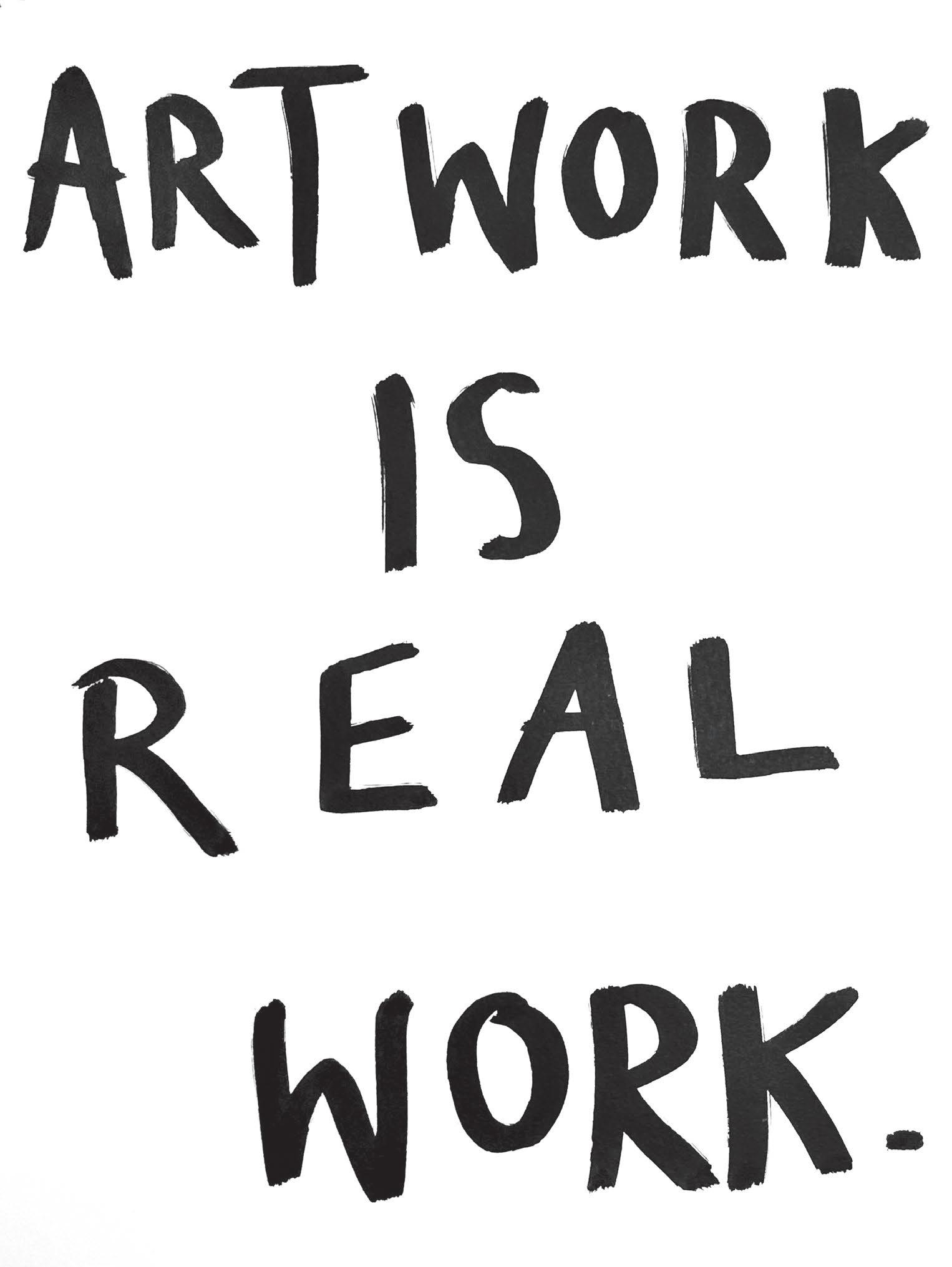
Indeed, even basic capitalist arguments about the value of the arts aren’t true. In their book Chokepoint Capitalism, Rebecca Giblin and Cory Doctorow explain how big corporations capture (read: steal) the value artists create. Corporations that have ethically dubious control over large swaths of the creative industries, as both buyers and sellers of creative works set up bottlenecks that allow them to extract maximum value from artists. It’s almost impossible for creatives to organise collectively to stop these practices. In other words, creatives generate a lot of money, but the vast majority of it is stolen from them before it hits their pockets.
Artists produce huge amounts of wealth, contributing hundreds of billions of dollars to the economy each year and supporting industries worth hundreds of billions of dollars. But we are constantly gaslit into believing we deserve to be poor because it’s in the interest of people in boardrooms who need to hit those quarterly sales figures. Instagram wouldn’t exist without creators. Audible, without writers. Sony and Spotify, without musicians. Activision, without coders and game designers. Galleries, without artists. And yet they all subtly and overtly contribute to the lie that there’s no money in art. Most of these companies are publicly traded. Go and look at their financials and tell me there isn’t anything left for artists. These corporations aren’t entitled to a certain amount of profit. They aren’t entitled to screw over artists.
The belief that artists don’t produce anything ‘valuable’ doesn’t only affect those of you who want to be professional artists. It also affects artists who make art for the joy of it. When we devalue the work of artists, we make all art seem unnecessary and unworthy. Hobbyists and professionals alike grow ashamed of their art. They make less because they internalise stories that tell them they should be doing something ‘useful’. We reduce the total amount of art in the world and therefore reduce the total amount of good.
You have value. What you do has value, both in monetary and nonmonetary terms. There are a lot of powerful forces that don’t want you to believe that.
You must resist.
CREATIVITY FOR CREATIVITY’S SAKE IS A MODALITY OF SELF- CARE AND SELF-FULFILMENT
No matter what the economists say, no matter what the acquaintances at the party say, we must understand the power of the arts. We invest so much time and money in breath work, exercise, meditation courses, cold plunges, selfhelp, or whatever other item might be on the checklist this month. But the idea that writing a poem, playing with paints or taking photos could be a part of our routine is dismissed as not proper self-care. Art feels a little too embarrassing. And it’s definitely a bit too vulnerable. But vulnerability is why it’s life-changing. It’s this intimacy that makes creativity a practice that will enhance your life.
At the end of an incredible meditation or breath work session, you have had to confront yourself, your mind, your ego. You have witnessed yourself. And it is so beautiful and beneficial. At the end of a creative session, you have also had to confront yourself, your mind, your ego. You have had to witness yourself, and then you made something with it. You have a culmination, an alchemy, physical evidence. You have a little bit of you in art form. I’ll say it again: creativity is the missing pillar in self-development.
Creation is the opposite of stagnation. It is momentum. It is power. It is agency. And that’s the triumph of making art. It’s why creativity is worth it even if you aren’t Sally Rooney or Florence Pugh or Hans Zimmer. People simply don’t realise this. The culture does not give creativity its proper respect as a vehicle for immense personal growth and change. We are told that it is merely a professional exercise. That’s why most people don’t have anything interesting to say to you at parties. They don’t know that when you tell them you write music, you are telling them you are doing intense inner work. They just think you’re failing at being a rock star.
This attitude doesn’t only make social gatherings a bit uncomfortable, it also ruins your ability to make art consistently and joyfully because it contributes to your creative shame. The person who makes cool shit on the weekends feels immense pressure to legitimise their personal practice by
monetising it. To be clear, I celebrate any creative who wants to sell their art. It’s one of the most generous and brave things you can do. And I think you can do it, as we will discuss later in this book. But it must come from the right place. It can’t be a means of appeasing capitalistic narratives. It can’t be a way for you to seem like a serious person to the rest of the world.
The spectacular irony is that even if you decide to go all in and treat your creativity as a job, the narratives persist. The shame that I felt for taking my writing seriously as an amateur was not solved when I had my first opportunity to try to make writing my full-time job. In fact, it got way, way worse.
In 2018, I was ‘gently let go’ from my café job, where I wore slippers to work and didn’t care whether you ordered skimmed or whole milk. I couldn’t pay rent. I moved in with my in-laws. I continued to apply for marketing jobs and admin roles, but essentially, I had the privilege of committing my time to telling stories and writing. For years, all I’d wanted was to make writing my career and now I finally had an opportunity to make a proper run at it. Yet, with all this spare time, I couldn’t get through a single day without crying. My word count dropped considerably compared with when I was working at the café. This is no exaggeration. All this free time made for less creativity. When someone asked me what I was doing for work, I wanted to disappear. My inner critic was on a tirade about how foolish and lazy I was to think I could play about for a living. ‘Get a real job’ was my nonstop mantra. Why was I spending so much time in make-believe worlds (and not even succeeding at that!) when my real adult friends were out there with Excel spreadsheets? I couldn’t create because the shame of it was keeping me stagnant.
It wasn’t only my inner critic. The ‘get a real job’ sentiment also came from people I really admired – predominantly other creatives. ‘It’s just not feasible’, ‘Only the few make it’ and general cynical laughter were some common responses. Some of the feedback came from very successful full-time authors, which was confusing and enraging. Even traditionally successful creatives seemed to have an opinion that this wasn’t serious work and that it wasn’t a viable or important way to spend my time.
I now think it would have caused less friction to say I was starting a business.
